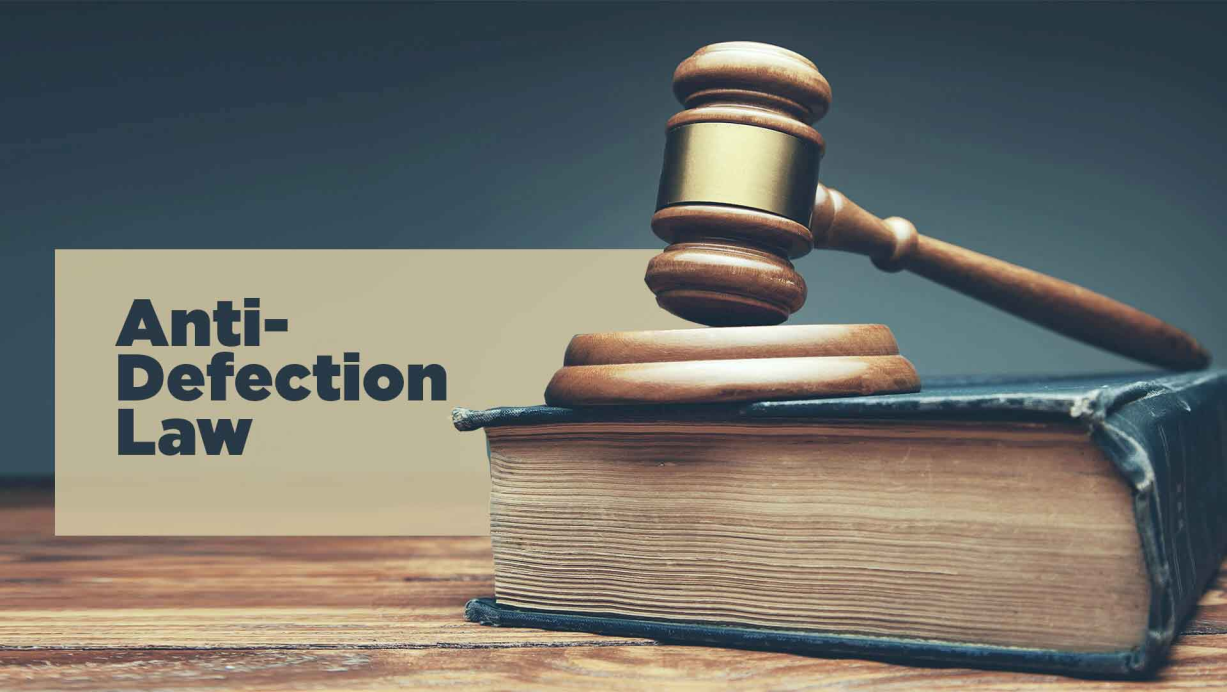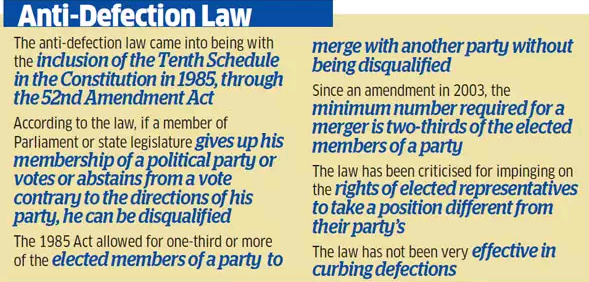Free Courses Sale ends Soon, Get It Now


Free Courses Sale ends Soon, Get It Now



Copyright infringement not intended
Context: The Supreme Court of India ruled that the anti-defection law remains in effect even if a faction splits off from a political party and succeeds to win a majority inside the party.
Details
Defection
Anti-Defection Law under Indian Constitution

Copyright infringement not intended
Provision of the Anti-defection Act
Anti-defection Provisions under the 91st Amendment Act of 2003
Significance of the Anti-defection law under the 10th Schedule
Concerns
Way forward
|
PRACTICE QUESTION Q. Consider the following Statements; 1. The 42nd Amendment Act provided for the disqualification of the members of Parliament and the state legislatures on the ground of defection from one political party to another. 2. The 91st Constitutional Amendment Act says that at least two-thirds of the members of a party have to be in favour of a "merger" to bypass the anti-defection act. 3. In the Kihoto Hollohan case, the Supreme Court declared the decision of the speaker in the matter of disqualification is subject to judicial review. Which of the following Statement is/are correct? (A) 1 and 2 only (B) 2 and 3 only (C) 1 and 3 only (D) 1, 2 and 3 Answer: B Explanation: Statement 1 is incorrect: The 52nd Amendment Act provided for the disqualification of the members of Parliament and the state legislatures on the ground of defection from one political party to another. Statement 2 is correct: The 91st Constitutional Amendment Act says that at least two-thirds of the members of a party have to be in favour of a "merger" to bypass the anti-defection act. Statement 3 is correct: In the Kihoto Hollohan case (1993), the Supreme Court declared the decision of the speaker in the matter of disqualification is subject to judicial review on the grounds of mala fides, perversity, etc. |
© 2024 iasgyan. All right reserved